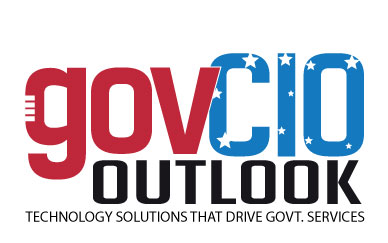MAY - JULY 2024 19GOVERNMENT CIO OUTLOOKWhat we bring to the table is a process to deal with any kind of event, emphasizing the importance of situational awareness and operational considerations . It allows the hospitals to tackle any event with a risk-based approach, understanding what the hazard is, how they are vulnerable to it, and the likely impacts of it. This is crucial to make better decisionssolutions tailored to the evolving needs of our clientele."EMA has built a community where hospital emergency managers have access to subject matter experts who can offer smart practices to emergent events. Quarterly webinars are offered where partitioners offer recent experiences and their lessons learned. In 2023, Jack McCartt officially joined EMA as its Chief Strategist. EMA's commitment to adaptability and innovation has allowed it to expand the program's reach and impact, positioning the company as a leader in training for hospital emergency management.A Comprehensive ApproachEMA provides certification training and exercises in developing sustainable programs which includes First Receiver Decontamination (FRD), hospital-based incident command systems (HICS), Emergency Manager Bootcamp, and all-hazards planning. Its curriculum is designed for easy adoption in the workplace.The approach adopted by the company involves engaging presentations followed by practical activities and functional exercises. The participants are provided with instruction templates, job aids, and practical coaching, which helps in instilling self-sufficiency among the participants. The goal is to transforms the participants into champions who can effectively implement sustainable programs in their healthcare establishments.After imparting theoretical knowledge and establishing infrastructure and policies, EMA guides healthcare facilities in applying the acquired insights. Hospitals can identify gaps and improve their emergency management processes by implementing HICS, FRD, and all-hazard planning. Additionally, EMA provides recertification training to emergency managers, helping them enhance their skills for success in the field."We equip participants with a rulebook and a playbook. While the rulebook lays out the fundamental guidelines, it's often difficult for individuals to grasp the intricacies of the playbook. This is achieved during practical exercises, where they will truly comprehend the nuances of decision-making processes, identify potential pitfalls, and learn the shortcuts to effective decision-making," says Jack McCartt, Chief Strategist at EMA.Once the training is completed, the healthcare organizations receive action reports, resources, and exercise records. The repository ensures that critical knowledge and documentation are easily accessible to incoming managers. This is crucial in addressing the challenge of continuity when a facility transitions between emergency managers. The new manager only needs access to the SharePoint drive for all the information and insights.The success of EMA's programs depends on four key pillars: training, infrastructure, policies and procedures, and exercises. These pillars are interdependent, and while training is essential, infrastructure, policies and procedures, and exercises are equally important.The Road AheadEMA has introduced two new programs in 2024, one of which involves common-sense implementation (CSI) of the Hospital Incident Command System (CSI for HICS) and an Emergency Manager Bootcamp. The Emergency Manager Bootcamp is tailored specifically for those overseeing emergency management programs within hospitals. These initiatives show a broader approach to in expanding our community of interest focused on hospital emergency preparedness."We prioritize sustainable growth and delivering enduring value. Our aim is not just to expand but to ensure that every initiative we undertake contributes to long-term impact and resilience for our clients," says McCartt.In five years, our goal is to become the leading partner for hospital emergency managers, providing comprehensive support for certification training, emergency planning, and full scale and table top exercises in building sustainable capabilities. Glenn Joseph, Chief Operating Officer
< Page 9 | Page 11 >
< Page 9 | Page 11 >
